-
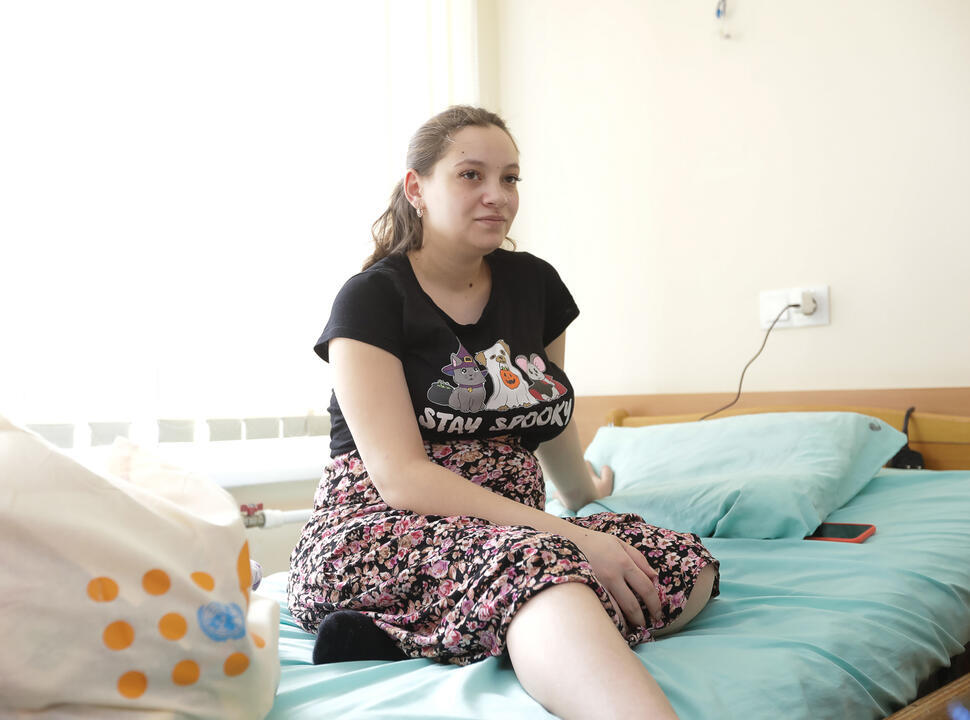
Meet Natasha, 21. On 27 February 2022, she walked for 12 hours in freezing temperatures to seek safety, with her three-year-old in tow. She was seven months pregnant.
It was just three days into the full-scale Russian invasion, and her home city of Kharkiv was a major target.
Natasha fled, first by over-crowded train, then by taxi, before heading to the Moldovan border on foot. “Nobody cared that I was pregnant and tugging my daughter along. I can’t be angry at those who didn’t stop for us though. Most of the cars were full.”
She made it to a refugee camp in Moldova, then to a hospital in need of emergency prenatal care, where UNFPA supported her.
© UNFPA Moldova/Eduard Bîzgu
-
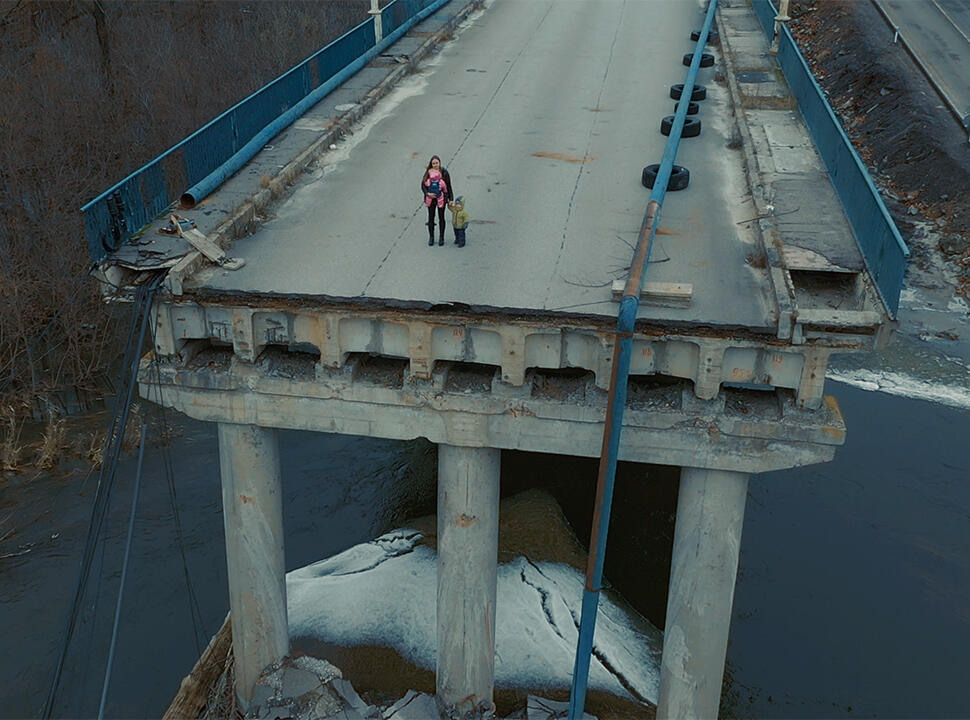
A year of relentless bombardment across Ukraine has caused appalling human suffering.
Nearly a third of the population – roughly 14 million people – have been forced to flee their homes since Russia launched its full-scale invasion of Ukraine on 24 February 2022.
© A still from the documentary Lust for Life, about women who have given birth during the war.
-

As men who are eligible for military service are required to remain in Ukraine, the refugee crisis is overwhelmingly a migration of women and children.
Here, on 12 March 2022, women who have said goodbye to husbands, partners, sons and other loved ones cross the border with young children – wrapped in aluminum blankets for the journey – to seek safety across the border in Moldova.
UNFPA provides safe spaces for the protection of women and children, and access to essential services.
© UNFPA/Siegfried Modola
-
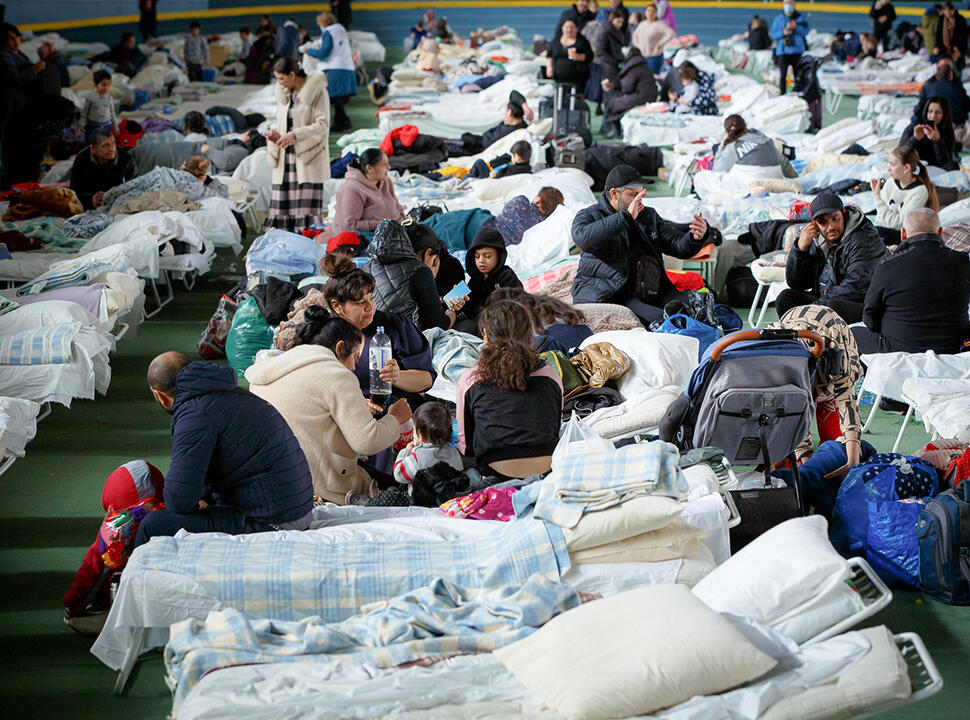
Refugee camps were set up overnight, including this one at the Manej Athletics Sports Centre in Chisinau, Moldova, which housed 650 people while longer-term solutions were sought.
UNFPA was on site to provide information, supplies and services.
© UNFPA Moldova/Eduard Bîzgu
-

Pregnancies and births do not stop during war. Family-planning needs do not stop during war. In fact, these services become even more vitally important so that women can give birth safely and make decisions about their reproductive health amid the crisis.
Dariya (right), from Odesa, received antenatal care in Moldova.
© UNFPA Moldova/Adriana Bîzgu
-
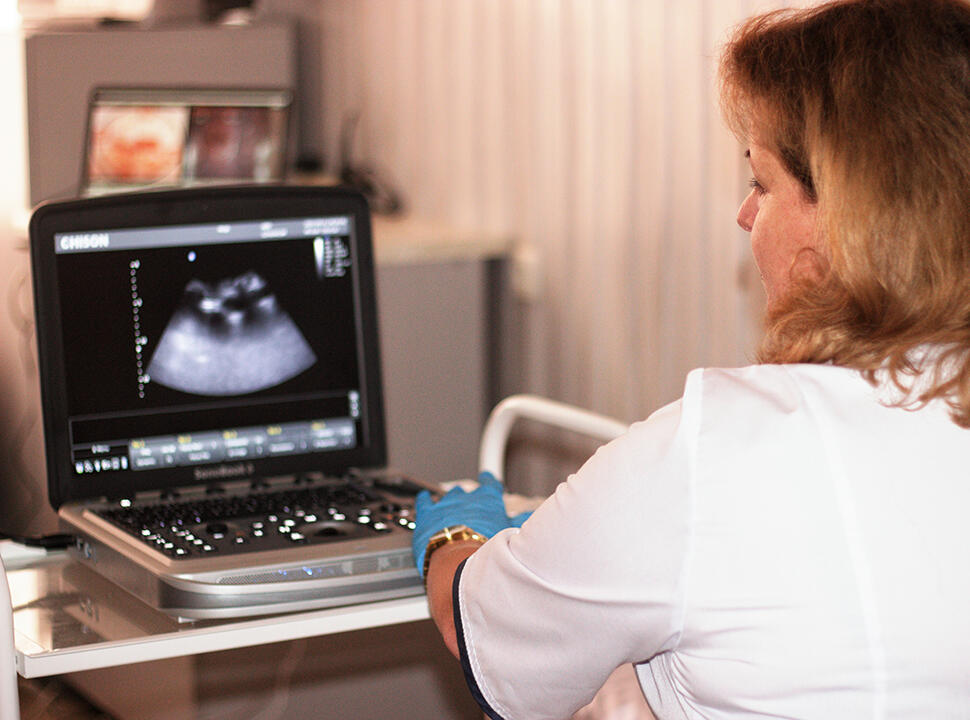
Dr. Tetyana Postolovska works in Vinnytsia from one of UNFPA’s mobile reproductive clinics.
There are currently 20 mobile clinics across Ukraine – stocked with medicines, equipment, contraceptives and tests for HIV, hepatitis and sexually transmitted diseases. They were set up in April 2022 to meet the needs of internally displaced people.
“The number of miscarriages have increased by 10 to 15 percent compared to the pre-war period,” says Dr. Postolovska, an obstetrician-gynecologist. "We need to be as accessible to people as possible…and every family [should have the] chance to give birth to a healthy child at the expected time.”
© UNFPA Ukraine/K. Hryshko
-
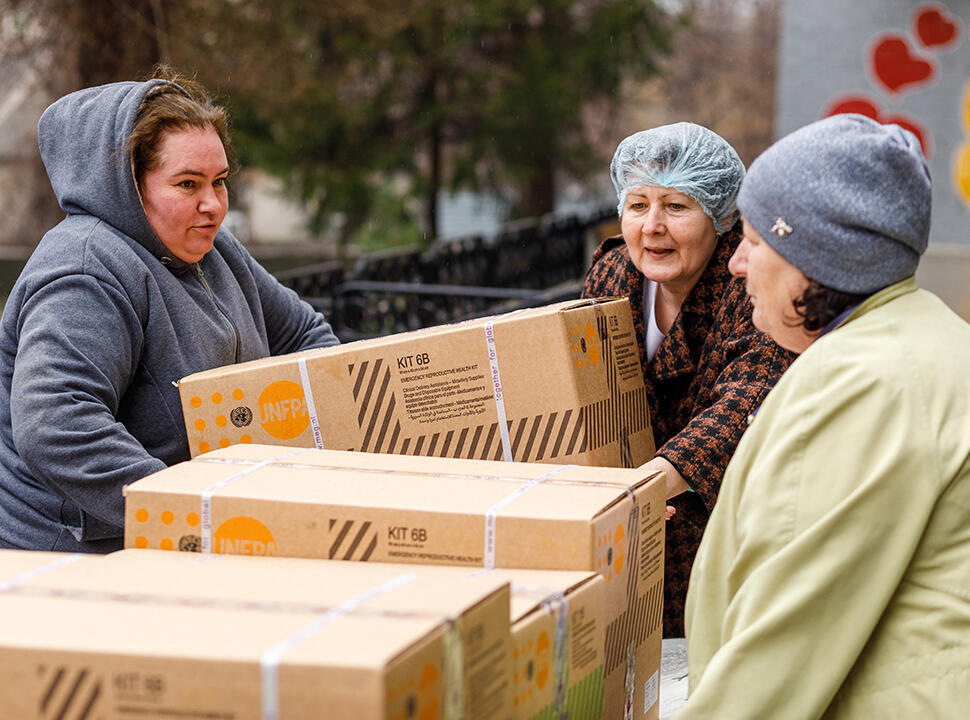
Over the past year, UNFPA has delivered reproductive health supplies and equipment to hospitals and mobile teams sufficient to cover the immediate reproductive health needs of 7.2 million people.
Here, in April 2022, a humanitarian cargo delivery of UNFPA emergency reproductive health kits arrives at a maternity hospital in Dnipro.
© UNFPA Ukraine/Mark Kachuro
-
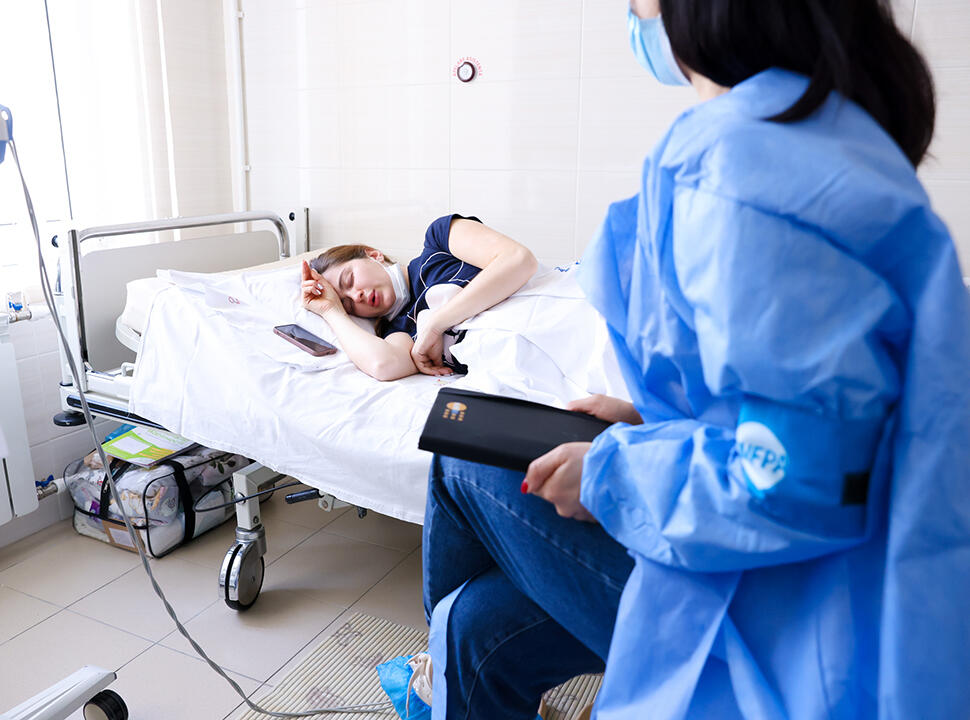
Valentina, 29, during labour at Chisinau’s Municipal Clinical Hospital No. 1 in Moldova on 1 March 2022.
A few days earlier, a heavily pregnant Valentina, who is a veterinary surgeon, urgently drove herself and her mother from the Ukrainian city of Odesa in search of safety. They found shelter with a local family across the border.
“I regret that my husband is not close with me,” she says, noting that this is her first child. “We planned this moment for a long time and dreamed it would be different.”
© UNFPA Moldova/Eduard Bîzgu
-
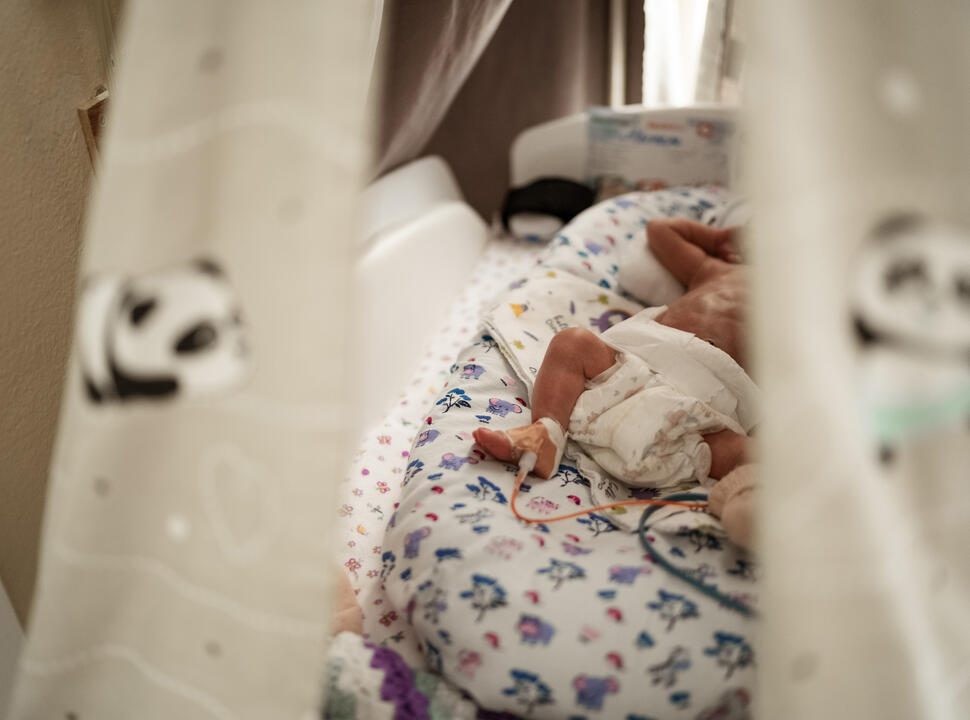
In 2021, there were just over 270,000 births in Ukraine. In 2022, this fell to 195,000, due to the war and with many women leaving the country. All women, no matter where they are, must have access to safe births.
Nataliia’s son Artem was born three months prematurely. Mother and child required care at Kyiv’s Perinatal Centre, which has received emergency medical supplies from UNFPA.
“He was so very tiny, [just] 1.6 kilograms — I am afraid to hold him and hold his hand because he is fragile and very small,” says Nataliia.
© UNFPA/Serhii Tymofieiev
-
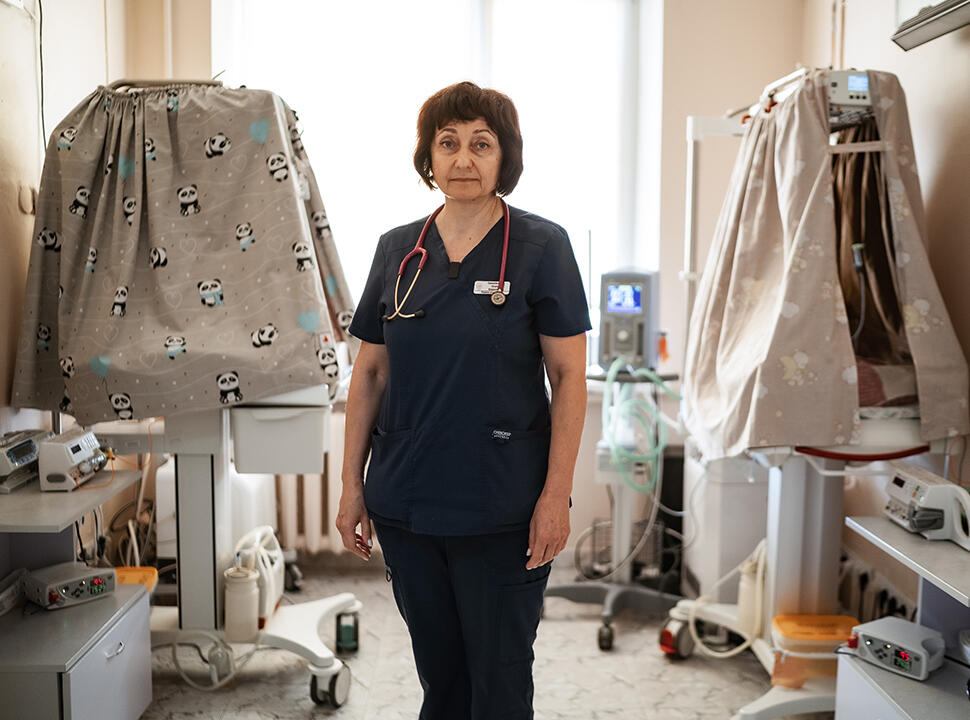
Dr. Olena Samoilenko is head of the neonatal department at Mother and Child Medical Centre in Kyiv.
Despite attacks on more than 760 health facilities — including maternity hospitals — during the past year in Ukraine, she has stayed on to provide the specialist care that pregnant women and new mothers and babies need.
Almost a third of the 195,000 women who gave birth in Ukraine in 2022 delivered at maternity facilities supported by UNFPA.
© UNFPA/Serhii Tymofieiev
-
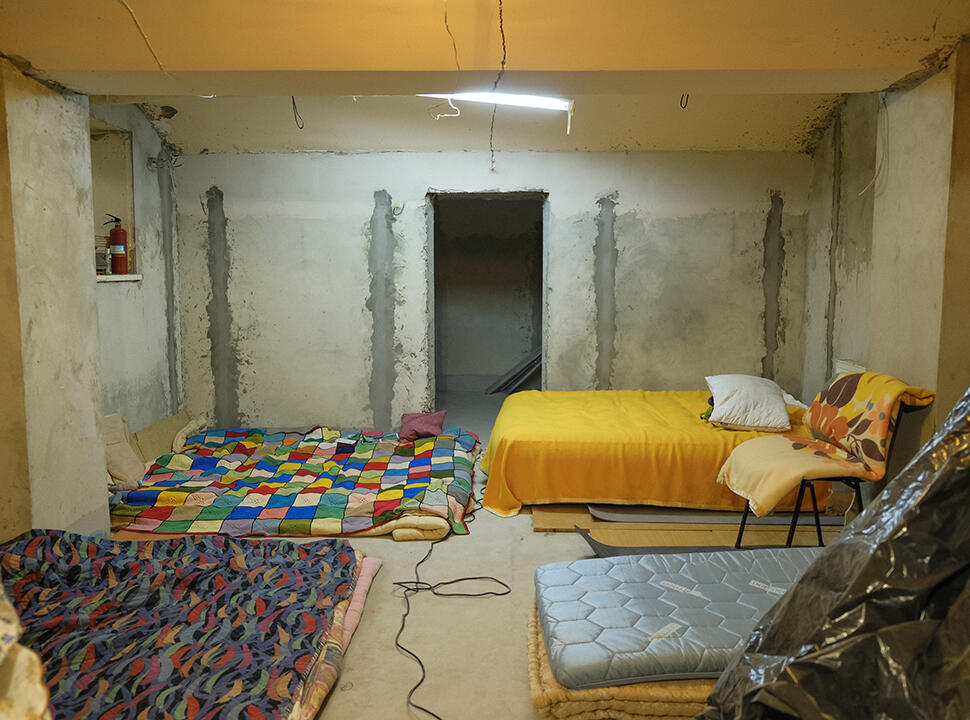
From safe births to safe spaces, UNFPA works around the clock to sustain life-saving services for women and girls.
At a Safe Space for women who have experienced violence in Lviv, Ukraine, a basement has been converted into a bedroom, supporting women who need a refuge from violent partners and those who have experienced physical and sexual violence carried out by soldiers.
For these women and their children, they need qualified, sensitive support to deal with a crisis within a crisis.
© UNFPA Ukraine/Oleksandr Sorokin
-
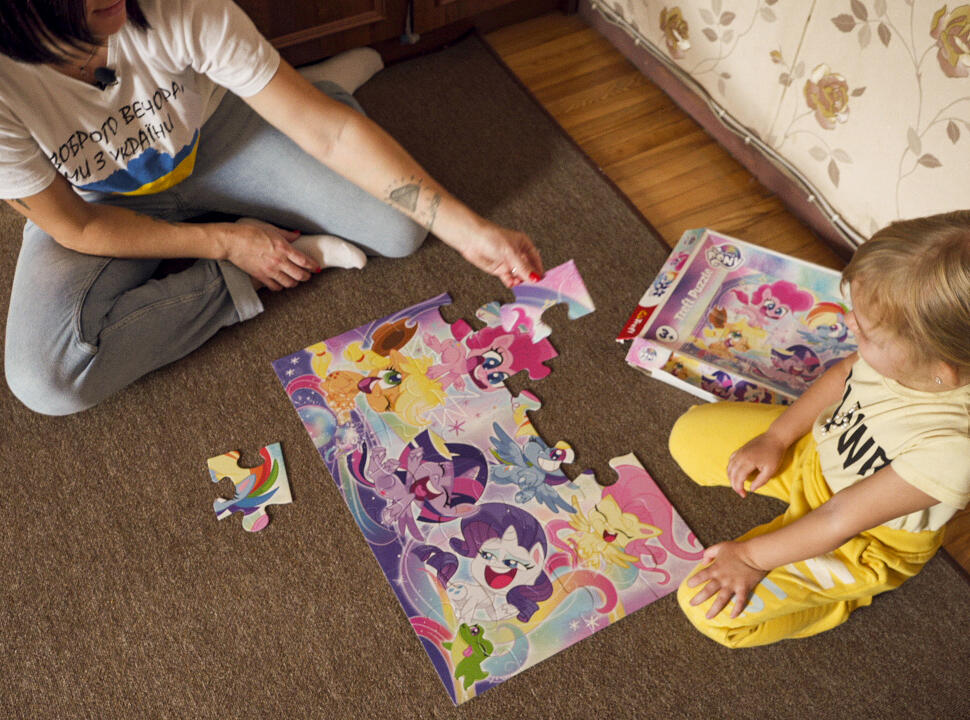
For Kateryna, the war brought her back into contact with her ex-husband.
“When the war started, people started to get closer. My ex-husband began to visit our child,” she says. “Violence returned to our lives.”
The city of Kherson was under Russian military control at the time. “I was afraid to leave the city,” she says. “We had strengthened the basement, plastered it. We were preparing to spend the winter in the city. The crisis that forced me to evacuate was domestic violence.”
Kateryna and her three children are receiving protection and support in a UNFPA-supported Safe Space.
© UNFPA Ukraine/Volodymyr Ovsychenko and Anastasia Saprykina
-
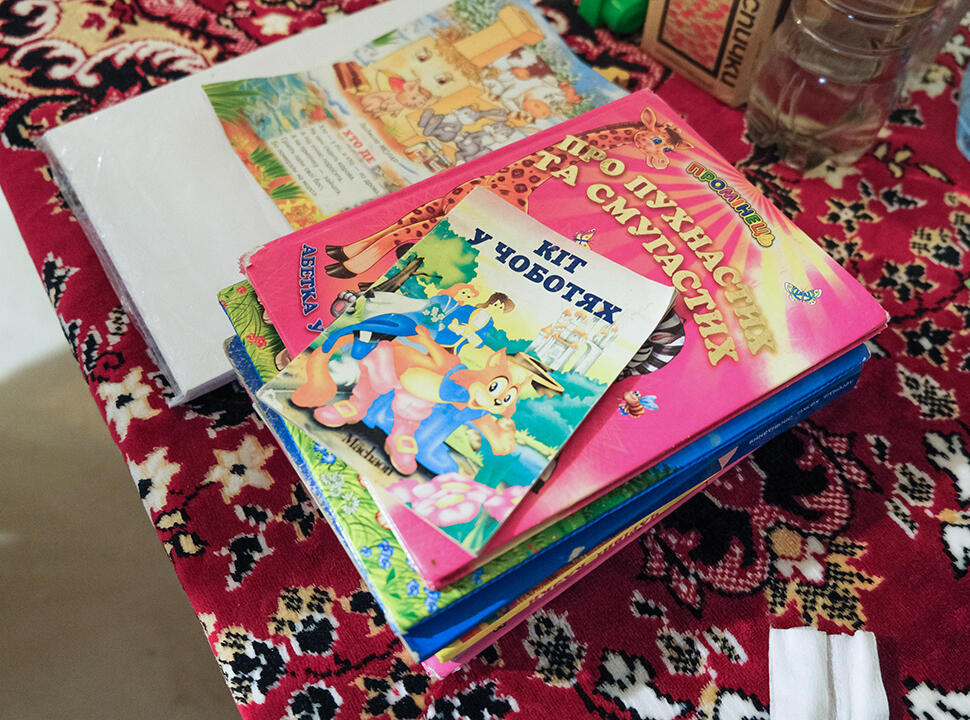
“Puss in Boots” and a story about “Fluffy and Stripey” are among the books on hand for children at the Safe Space in Lviv.
UNFPA has established more than 48 centres for survivors of violence and women at risk across Ukraine, including shelters, crisis rooms, a national hotline and more than 100 mobile support teams.
© UNFPA Ukraine/Oleksandr Sorokin
-
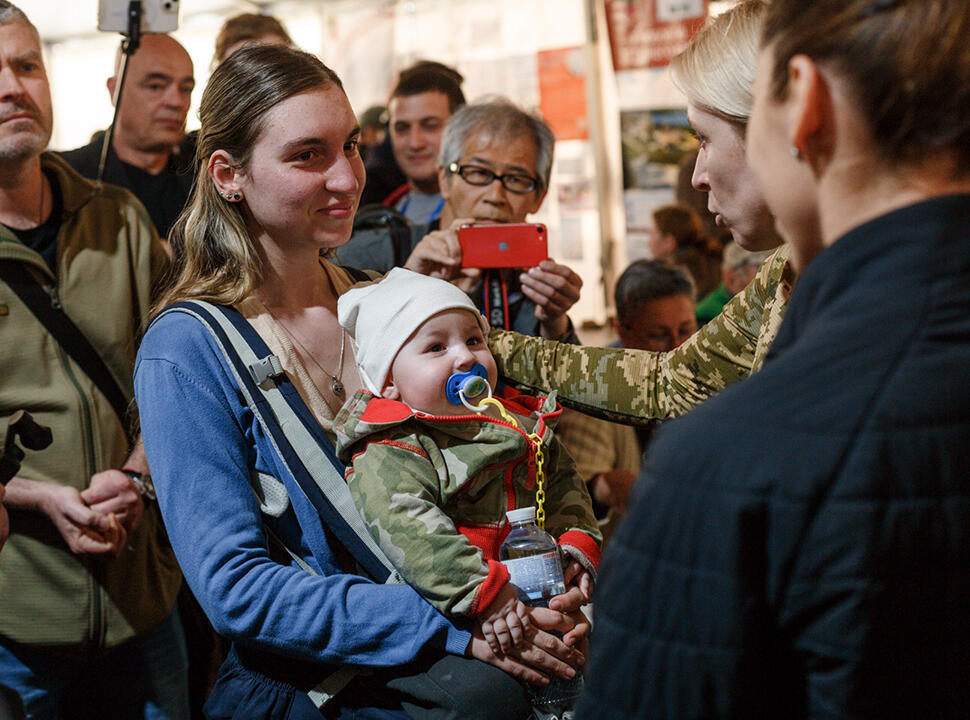
While UNFPA provided safe spaces and refuge for thousands, we were aware that many other people remained trapped in occupied areas – including in Mariupol, where civilians and soldiers took shelter in underground bunkers at the Azovstal steel plant for 80 days.
In May 2022, survivors evacuated the steel plant. Here, families leave the plant and head to Zaporizhzhia.
UNFPA was there to greet and support the evacuees, providing four psychosocial support mobile teams and 750 essential packs to help women and girls with basic needs.
© UNFPA Ukraine/Olha Opilat
-
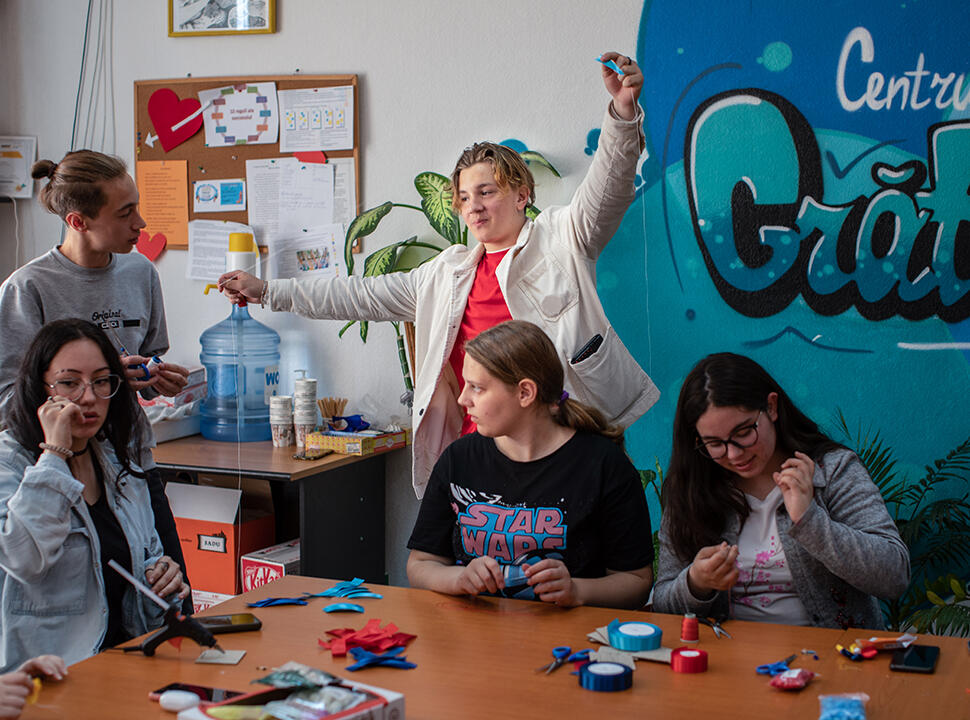
Initiatives supported by UNFPA are helping people deal with the invisible scars of war.
“Art helps us all to cope with our pain, the injustice of losing friends and normal life,” says 18-year-old Sabina (seated, second from right), who is from Melitpol, a city which remains under Russian occupation.
Sabina is a youth volunteer at a youth centre in Gratiesti, Moldova, supported by UNFPA.
“I am not the only one who lost friends or family in the war,” she says. “Many of the young refugees here are struggling with stress and depression.”
© UNFPA/Siegfried Modola
-
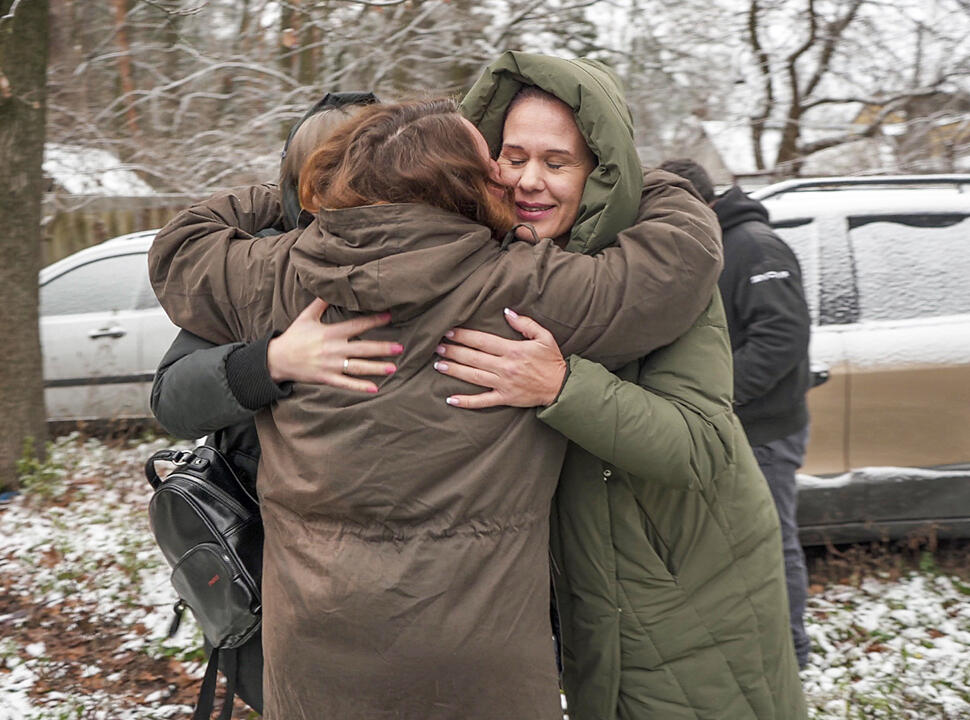
Psychologist Victoria Semko has returned to Irpin, and is helping to re-establish community connections.
"When I first came back to Irpin, it was scary. There were shot cars and burnt tanks on the streets. The city was emptied. Absolutely everything was different. The city seemed like a ghost,” she recalls.
“I took matters into my own hands and started a psychological support group. Later, I was invited to work in the UNFPA socio-psychological assistance mobile teams." says Victoria.
She describes supporting people through immense psychological pain, including a woman who was unaware the city had been returned to Ukrainian control, as she had remained in hiding, traumatized by the atrocities she had seen.
“It is extremely pleasing when I see positive changes in the people I work with," says Victoria.
© UNFPA Ukraine/Roman Buchko
-

A big wedding, a house by the sea and a family business. These were Anastasiia’s plans before the war.
In March 2022, Anastasiia left Berdyansk, as she could not access the prenatal medical care she required in the occupied city.
She gave birth to twin boys in June 2022. “We had to endure so much,” she says. “My sons have withstood everything. We must stay strong for their sake. Because children are our future, they replace those who, unfortunately, passed away.”
With the conflict ongoing, UNFPA continues to invest in vital services to protect women and girls from violence, and to ensure they can make their own reproductive decisions, access safe births and fulfill their potential.
© UNFPA Ukraine/Eugen Hoptynskyi
- Home
- Slideshows
- Ukraine war: Stories of love and survival one year on
Ukraine war: Stories of love and survival one year on
23 February 2023




